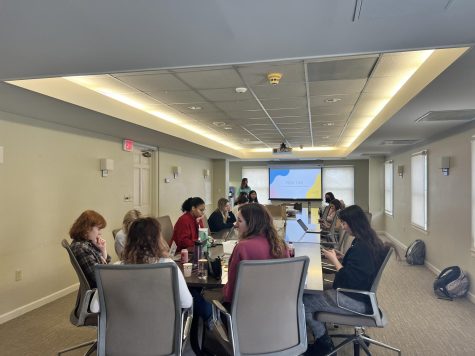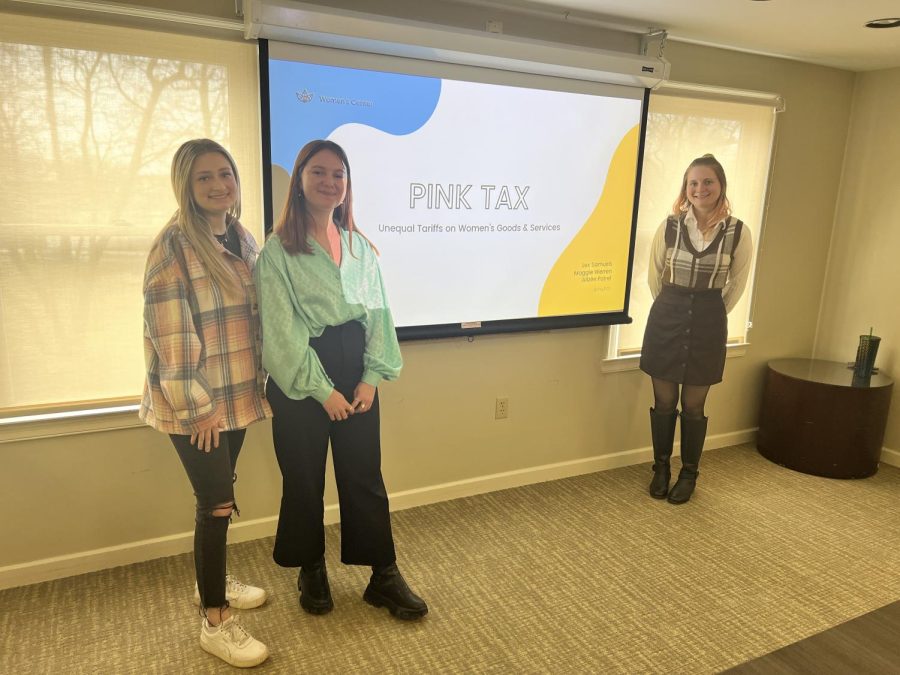Women’s Center celebrates Women’s History Month with a presentation on Pink Tax
The Women’s Center interns present the Pink Tax March 16, 2023.
Students interning at the Women’s Center celebrated Women’s History Month with a presentation on the “Pink Tax” and how it affects women worldwide. The Pink Tax refers to the extra amount of money women pay for specific products or services compared to men.
“I knew about the Pink Tax, but I thought of it as a tax on products,” Sage Hardiman, sophomore computer science major, said. “I didn’t think about it as services, like haircuts, that never really crossed my mind as being a Pink Tax.”
During the presentation, three moderators discussed how the Pink Tax affects women daily without them realizing it.
“We also need to take into consideration how women are paid less than men but have to pay more for products and services,” Alizée Potrel, graduate VCD major, said.
Products and services with a Pink Tax include razors, adult diapers, body wash, hair products, children’s toys, healthcare insurance and more.

“Women are paying roughly $1,351 more per year for similar products and services,” Alexandra Samuels, senior English major, said. “In the U.S., female-marked products cost an average of 7% more than male-marketed products.”
The Pink Tax was first noticed in the United States in the 1990s when California’s Assembly Office of Research report found that stores in several states charged more for products and services targeted toward women.
“In 1995, the governor of California implemented a Gender Tax Repeal Act that required merchants to charge women and men the same price if the services took the same amount of time,” Samuels said.
The gender appeal is specifically aimed at services such as haircuts and alteration services. Since then, several other states and nations have passed laws to combat the Pink Tax.
“In 2020, Ohio passed legislation that women no longer have to pay sales tax on tampons,” Margaret Werren, senior communications studies major, said.
While some places are changing their laws, others countries are not. In Singapore, women have to pay more for CareShield Life, which is the predominant health insurance in the country.
The moderators expressed the importance of staying educated on the Pink Tax and any legislation against or for it.
“The biggest issue with the Pink Tax is that not a lot of people know about it or the full extent of it,” Samuels said. “Tell some people about it and speak up on social media.”
After the presentation, attendees were encouraged to decorate baskets that will be placed around dorms across campus with hygienic products. The baskets were meant to be decorated gender-neutral so that people weren’t intimidated when taking products from the basket.
“It’s an injustice,” Potrel said. “There is no justification for why companies make women’s products more expensive than men’s products and we have to be aware of this.”
Chania Crawford is a reporter. Contact her at [email protected].


